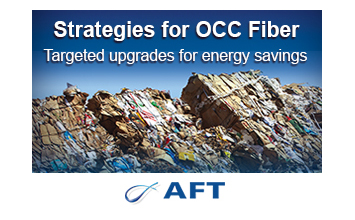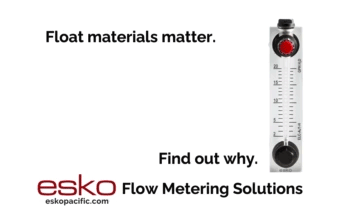January–March 2024 (compared to 1–3/2023)
- Sales were EUR 483.7 million (542.1).
- The comparable operating result was EUR 31.5 million (88.7), or 6.5% of sales (16.4). Operating result was EUR 23.0 million (88.4).
- Comparable earnings per share were EUR 0.06 (0.19), and earnings per share were EUR 0.04 (0.19).
- Comparable return on capital employed was 5.7% (13.9).
- Net cash flow from operations was EUR -7.9 million (126.4).
Events in January–March 2024
- Demand for Metsä Board’s fresh fibre paperboards picked up notably from the previous quarter. The average price of folding boxboard decreased.
- Demand for market pulp was boosted by paper and paperboard producers’ higher capacity utilisation rates in Europe. The average prices of market pulp improved, especially in Europe.
- Political strikes by Finnish trade unions from 11 March to 8 April 2024 stopped raw material transports and halted export ports. Due to the strikes, Metsä Board’s paperboard and BCTMP production stopped for 2–3 weeks at all the mills in Finland. The company expects the negative impact of the strikes to be around EUR 25 million in the first half of the year.
- Cash flow from operations weakened by a rapid increase in working capital. Cash flow for the review period includes a dividend of EUR 9.8 million (1–3/2023: 83) from the associated company Metsä Fibre.
- On 21 March 2024, a gas explosion occurred at the evaporation plant of the associated company Metsä Fibre’s Kemi bioproduct mill, which also affects production at Metsä Board’s paperboard mill. The bioproduct mill’s down-time caused by the explosion is expected to last until the end of June.
- Metsä Board decided not to go ahead with the Kaskinen folding boxboard mill investment. The costs of pre-engineering, EUR 7.6 million, were recognised in the January–March operating result as an item affecting comparability.
- Metsä Board’s Annual General Meeting was held on 26 March 2024. The Annual General Meeting resolved that a dividend of EUR 0.25 per share, or a total of approximately EUR 89 million, be paid to the shareholders. The dividend was paid on 9 April 2024.
- CDP recognised Metsä Board with the highest A-level score for transparency on climate change and water security. The company received a grade A- in the forest assessment. The rating was complemented by a place on the CDP Supplier Engagement Leaderboard.
Events after the review period
On 24 April 2024, Metsä Board made an investment decision to renew the folding boxboard machine at Simpele. The investment will enable the replacement of fossil fuels in paperboard production, increase production efficiency and improve the quality of folding boxboard. In addition, the renewal will increase production capacity by 10,000 tonnes, which will bring Simpele's production capacity of folding boxboard to about 310,000 tonnes/year. The investment will start immediately and is expected to be completed in the second half of 2025. The investment value is around EUR 60 million, spread over the period 2024–2026. Simpele mill produces high-quality lightweight folding boxboard, mainly for food and pharmaceutical packaging.
Near-term outlook
The good demand for fresh fibre paperboards seen in the beginning of the year is expected to continue in the second quarter. Demand is supported by restocking activities in the value chain. The overall demand for consumer products will continue to be influenced by the trend in consumers’ purchasing power and general purchasing behaviour.
Metsä Board’s paperboard delivery volumes are expected to increase slightly in April–June compared the previous quarter (1–3/2024: 364,000 tonnes). The sales prices in local currencies are expected to remain stable.
More annual maintenance shutdowns will take place at the mills in April–June compared to the previous quarter.
Total costs, excluding pulp costs, are expected to remain stable.
Average pulp prices are expected to improve clearly from the first quarter. The global market situation for long-fibre pulp will remain tight, as supply is limited by the repair works at the Kemi bioproduct mill, pulp producers’ annual maintenance shutdowns and bottlenecks in global logistics. The demand and price situation for sawn timber is expected to improve slightly on a seasonal basis in the second quarter of the year.
In April–June 2024, exchange rate fluctuations, including the impact of hedges, will have a slightly positive impact on the operating result compared with January–March 2024 and a slightly positive impact compared with April–June 2023.
The negative result impact caused by the political strikes in Finland is expected to be roughly at the same level in April–June as in January–March, EUR 10–15 million. In April–June, the negative result impact caused by the gas explosion in Kemi is expected to amount to EUR 30–40 million. The estimate will be specified as a more precise schedule for the repair work and production restart becomes available. Metsä Board and Metsä Fibre have property damage and business interruption insurance policies in accordance with established practice, for which compensations are recognised later and are not included in the estimate. The estimates concerning the strikes and the gas explosion in Kemi include the impact of Metsä Fibre’s share of the result.
Result guidance for April–June 2024
Metsä Board’s comparable operating result in April–June 2024 is expected to be weaker than in January–March 2024.
Metsä Board’s CEO Mika Joukio:
“We had a positive start to 2024, with demand for fresh fibre paperboards picking up notably. Demand for paperboards has been boosted by restocking in the value chain and the normalisation of market balance, especially in Europe. We expect the positive momentum to continue in the coming months.
Due to the trade unions’ political strikes in March, we were forced to stop production at all our Finnish mills, as raw material transports to mills were halted and port closures prevented customer deliveries. Depending on the mill, the production shutdowns lasted for 2–3 weeks, taking place in March–April. Naturally, this was an unfortunate setback, as order inflows had just picked up after prolonged weak demand. We estimate that the strikes caused us profit losses of roughly EUR 25 million, around half of which were allocated to the first quarter.
Despite the strikes, our January–March paperboard delivery volumes increased by a fifth from the previous quarter, totalling 364,000 tonnes. The volumes increased in both folding boxboard and white kraftliners. No planned annual maintenance shutdowns took place in the review period, and this also increased paperboard production volumes. Our first quarter sales amounted to EUR 484 million, and our comparable operating result was EUR 32 million. Our financial position remained strong.
At the end of the review period, a gas explosion occurred at the evaporation plant of Metsä Fibre’s Kemi bioproduct mill. The bioproduct mill’s production shutdown will also affect the production of white kraftliner at Metsä Board’s paperboard mill, which is part of the Kemi integrated mill. The bioproduct mill’s downtime caused by the explosion is expected to last until the end of June. However, we plan to continue producing white kraftliner during the repair work at a lower than normal production level.
We decided not to invest in a new folding boxboard mill in Kaskinen. The pre-engineering indicated that the project’s overall cost would have been significantly higher than the original estimate, and the project would not have met the financial targets set for it. Instead, we will launch programmes for new product options as well as growth and development investments at our existing mills to implement our strategy of growing in fibre-based packaging materials and renewing our industrial operations. The programmes will support our target of fossil free production by the end of 2030. We will also continue to develop packaging solutions that reduce the use of plastic, especially in food and food service packaging.
We are currently focusing on making full use of the growth investments completed in Husum and Kemi last year. Both investments strengthen our leading position in folding boxboard and coated white kraftliners in our main market areas in Europe and North America. Our customers appreciate high quality, and we aim to be their preferred supplier of premium fibre-based packaging solutions.”
Source: Metsä Board













